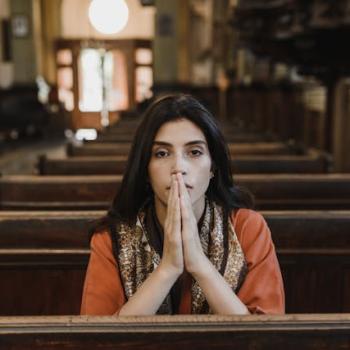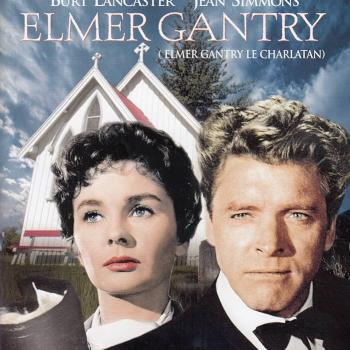Editors' Note: This article is part of the Patheos Public Square on the Future of Faith in America: Judaism. Read other perspectives here.
The future of Jewish life in America is a complete unknown.
If you are Jewish, you may have just read that statement with a familiar sense of pessimism and a tired feeling of having heard it all before. But this is not the defeatist statement of a member of the "faithful." On the contrary, as a newly minted rabbi, I write it as a potential mission and vision statement for the American Jewish polity.
Let me explain my optimism.
Religious traditions and communities of all kinds have had something worth offering, in the minds of the majority of humanity, for well over 5000 years. The idea that that something must be a fixed set of dogma, behavior, ritual, and literature is one that ignores the historical, philosophical, and theological evolution experienced by every religious tradition that ever existed.
What I think we're seeing specifically in the American Jewish world right now is the falling away of the myth of monolith; a breaking out of one of these cycles where what it meant to "be Jewish," naturally and exclusively, was a single set of minimum, fixed standards of ideas and behavior.
A well-known and often used paradigm for how humans interact with religious tradition was offered over fifty years ago by Rabbi Mordecai Kaplan, the founding thinker of Reconstructionist Judaism. He taught that we generally find our way into religious participation by behaving, belonging, and believing. It has been my experience that my Jewish generation and those younger than us are in the process of redefining these points of entry for our times.
We are engaging in a kind of living exegesis that happens through the Jewish frame we apply to our lives and choices:
• We behave autonomously, and many of us are seeking and finding ways to connect our lives' actions and passions to Jewish text, culture, and values — on our schedules, through our modalities, and in our homes and communities.
• We belong because we say we do. Young Jewish individuals and families are not waiting for anyone to tell us we've met some minimum standard for membership or to congratulate us with the reward of conferred status. The power of building our Jewish identity and member status by sheer self-determination has been let out of the box in America over the last two generations, and there is no putting it back in.
• And we do believe in something — in the power of repairing the world, in encountering the Divine in our fellows, in being of service to God through being of service to man, in the wisdom of Torah and the wisdom of the wider world, and through acts that illustrate our fundamental understanding of the value and potential of every human life. The words of these take-away tenets may read differently than they did fifty or one hundred years ago, but American Jews of today and of the future will still hear the values of the Jewish frame of mind and spirit in them — that same, ever-present, still small voice heard deep inside the Jewish heart.
So, the future of the Jewish faith in America, in my opinion, is actually as simple as having faith in the American Jewish people to experiment — to create some new behavioral norms, to hold onto some old ones, to stumble along the way, and to figure it out. We need to start being okay with not knowing.
If history is precedent, Jews have lived, and perhaps always will live, one generation away from cultural extinction. Yet, we have thrived, in waves of theological and civilizational creativity that find their way forward, century after century. I believe the synagogue can still serve as the loci of these creative adaptations. But to do so, it has to let itself be as daring as the people it serves, and learn that the Jewish tradition exists to serve its people, not the other way around.
In every Jewish community today, there are those who behave, belong, and believe exactly as Jewish norms of twenty-five or fifty years ago told them they should. We need to keep serving these community members, and making sure that they feel comfortable and at home in our synagogues and cultural institutions. These places are their homes; they built them. And those of us who clamber for the new and different need to remember and respect the literal and generational foundation we stand on.
But the most forward-thinking of our synagogues and institutions are, at this very moment, also building compassionate bridges from American Judaism's past to its future, by simultaneously expanding their capability to serve those who don't need to behave or believe in prescribed ways to feel and know that they truly belong.
7/8/2015 4:00:00 AM




